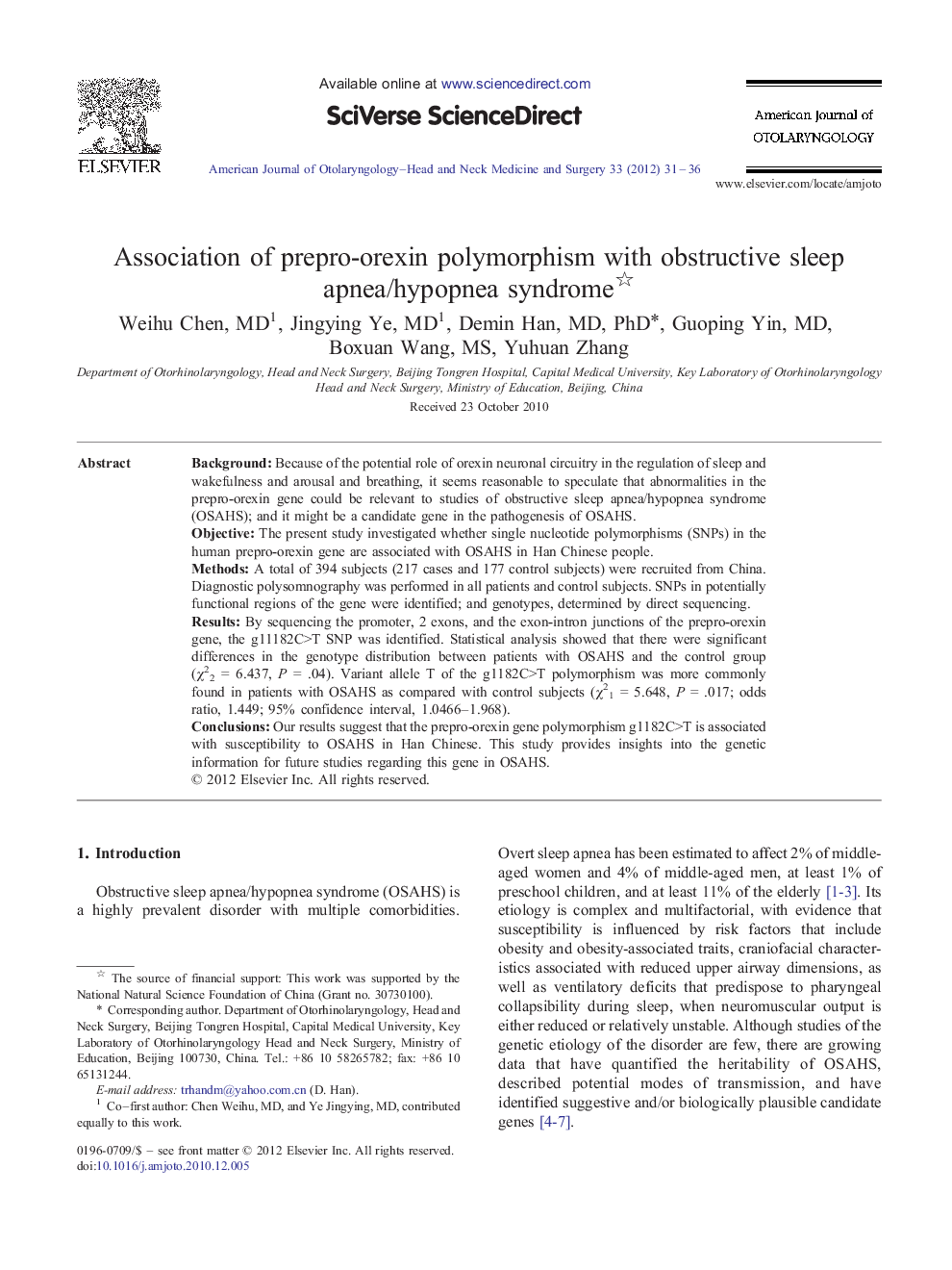| Article ID | Journal | Published Year | Pages | File Type |
|---|---|---|---|---|
| 4104011 | American Journal of Otolaryngology | 2012 | 6 Pages |
BackgroundBecause of the potential role of orexin neuronal circuitry in the regulation of sleep and wakefulness and arousal and breathing, it seems reasonable to speculate that abnormalities in the prepro-orexin gene could be relevant to studies of obstructive sleep apnea/hypopnea syndrome (OSAHS); and it might be a candidate gene in the pathogenesis of OSAHS.ObjectiveThe present study investigated whether single nucleotide polymorphisms (SNPs) in the human prepro-orexin gene are associated with OSAHS in Han Chinese people.MethodsA total of 394 subjects (217 cases and 177 control subjects) were recruited from China. Diagnostic polysomnography was performed in all patients and control subjects. SNPs in potentially functional regions of the gene were identified; and genotypes, determined by direct sequencing.ResultsBy sequencing the promoter, 2 exons, and the exon-intron junctions of the prepro-orexin gene, the g11182C>T SNP was identified. Statistical analysis showed that there were significant differences in the genotype distribution between patients with OSAHS and the control group (χ22 = 6.437, P = .04). Variant allele T of the g1182C>T polymorphism was more commonly found in patients with OSAHS as compared with control subjects (χ21 = 5.648, P = .017; odds ratio, 1.449; 95% confidence interval, 1.0466–1.968).ConclusionsOur results suggest that the prepro-orexin gene polymorphism g1182C>T is associated with susceptibility to OSAHS in Han Chinese. This study provides insights into the genetic information for future studies regarding this gene in OSAHS.
